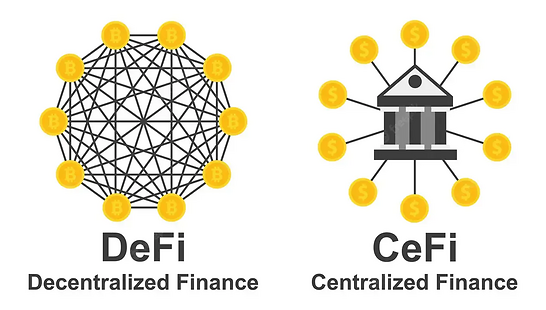In today’s digital world, privacy is becoming one of the most sought-after aspects of online interactions. From social media to online shopping, nearly every digital service collects and shares personal information. This raises significant concerns, especially in financial transactions where privacy can directly affect a person’s safety and security.
Cryptocurrency has risen as a solution to address these privacy concerns, offering users more control over their personal information and financial autonomy. But how exactly does cryptocurrency enhance privacy? Let’s explore.
The Need for Privacy in the Digital Age
As we become more digitally connected, our personal and financial information is more exposed than ever. Traditional financial systems, such as banks and payment processors, collect and store massive amounts of personal data. This includes our names, addresses, transaction histories, and more. Unfortunately, this centralized approach to storing sensitive data often makes it vulnerable to breaches, hacks, and surveillance.
The rise in cybercrime, identity theft, and fraud highlights how crucial privacy has become. Many of us don’t realize that each time we swipe our card or transfer money through traditional systems, we’re leaving a trail of personal information that could be misused.
How Traditional Finance Exposes Data
Let’s break down how traditional financial systems work in terms of privacy. When you make a payment using a credit card, debit card, or even some online payment systems like PayPal, your transaction is recorded by several entities—your bank, the payment processor, and sometimes the merchant’s bank. All these institutions have access to your personal details, including your transaction history. They store this data, and although it’s usually protected, it’s still prone to breaches.
Moreover, these institutions often require you to provide sensitive information to verify your identity, like your social security number, passport, or driver’s license. This means your financial life is in the hands of centralized organizations that can be targets of cyberattacks. A breach at one of these institutions could expose all of your sensitive data in one go.
On top of that, financial transactions can be subject to surveillance from governments or corporations, which may track your spending habits or monitor your activity for different purposes. This can leave many feeling like they have little control over their own financial privacy.
Enter Cryptocurrency: A More Private Alternative
Cryptocurrency emerged as a game-changer, offering a way to exchange value without relying on third-party intermediaries like banks. By using blockchain technology, cryptocurrency provides users with greater privacy and autonomy over their financial transactions.
Unlike traditional financial systems, where personal details are required, cryptocurrencies allow users to make transactions using a public key—a string of letters and numbers that is essentially an alias for your identity on the blockchain. This means that when you send or receive cryptocurrency, you don’t have to reveal your real identity.
More importantly, blockchain technology is decentralized, meaning there’s no central authority that controls or has access to the data. This decentralized approach limits the risks of mass data breaches, hacks, and surveillance.
How Cryptocurrencies Protect Privacy
Pseudonymity vs. Anonymity
Cryptocurrency transactions are often described as “pseudonymous” rather than “anonymous.” This means that while your real identity is not tied to your transactions, the public key used in transactions can still be traced on the blockchain. So, while you’re not directly identified, with enough effort, someone could potentially link your public key to your identity, especially if you’ve used it in conjunction with personally identifiable information.
For those seeking more robust privacy, some cryptocurrencies offer anonymity features. In contrast to pseudonymous cryptocurrencies like Bitcoin, privacy coins provide even greater protection.
Encryption and Cryptography
At the core of cryptocurrency is cryptography, which plays a crucial role in enhancing privacy. Cryptography secures transactions by ensuring that data shared over the blockchain cannot be easily accessed by third parties. Encryption scrambles the information so that only the intended recipient can decode it, protecting it from prying eyes.
This advanced encryption provides users with greater confidence in the privacy and security of their transactions, knowing that their data is well-protected.
Privacy Coins
Certain cryptocurrencies, known as privacy coins, are specifically designed to maximize privacy. Monero (XMR) and Zcash (ZEC) are two of the most well-known privacy coins.
Monero uses advanced cryptographic techniques like ring signatures and stealth addresses, which make it nearly impossible to trace transactions back to the sender or recipient. Zcash offers two types of transactions: transparent (similar to Bitcoin) and shielded, which uses a technology called zk-SNARKs (Zero-Knowledge Succinct Non-Interactive Arguments of Knowledge) to hide transaction details completely.
These privacy coins are a response to the need for even more secure and private transactions in the cryptocurrency world.
Benefits of Cryptocurrency Privacy
Financial Freedom and Autonomy
One of the most significant advantages of cryptocurrency is that it empowers users with financial freedom and autonomy. In traditional finance, you rely on intermediaries to process transactions and manage your funds. With cryptocurrency, you control your assets directly, without needing a third party.
Because of this, your financial life becomes more private and independent. You no longer need to share personal details with banks or payment processors to complete a transaction, giving you more control over your privacy.
Protection from Censorship
Cryptocurrency also offers protection from censorship. In some countries, access to financial services may be restricted or monitored by governments. This is especially true in regions with strict capital controls, where people have limited freedom to move their money. Cryptocurrency, however, operates globally and is decentralized, meaning no single entity can censor transactions.
This is particularly useful for individuals in oppressive regimes or those who are targeted by financial censorship. With cryptocurrencies, they can transfer and store wealth without fear of interference or monitoring.
Reduced Exposure to Hacks
Centralized institutions, like banks and payment processors, store large amounts of sensitive data, making them attractive targets for hackers. In the case of a data breach, millions of people’s personal and financial information could be exposed.
Cryptocurrencies reduce this risk by decentralizing the storage of data. Since cryptocurrency transactions do not require users to share sensitive personal details, there’s less risk of being exposed in a hack. Additionally, using cryptographic techniques to secure transactions ensures that only authorized users can access the funds, adding an extra layer of protection.
Privacy Challenges in Cryptocurrency
Blockchain Transparency
While cryptocurrencies offer privacy features, they are not without challenges. One of the key issues is the transparency of blockchain technology itself. Blockchains are public ledgers, meaning that every transaction is recorded and can be viewed by anyone.
Although transactions are pseudonymous, meaning the real identity of the user is hidden, it’s still possible to analyze transaction patterns and link certain activities back to individuals. This has led to concerns that cryptocurrencies may not be as private as they seem.
Regulatory Pressure
Another challenge comes from increasing regulatory pressure. Governments around the world are beginning to crack down on the use of cryptocurrency for illegal activities like money laundering or tax evasion. As a result, they are enforcing stricter Know Your Customer (KYC) and Anti-Money Laundering (AML) regulations, requiring cryptocurrency exchanges to collect personal information from users.
This push for regulation may limit the privacy-enhancing features of cryptocurrencies, particularly as exchanges are forced to comply with these laws.
How to Maximize Privacy When Using Cryptocurrency
Even with these challenges, there are steps you can take to maximize your privacy when using cryptocurrency.
Using Privacy Coins
One of the best ways to enhance privacy is by using privacy-focused coins like Monero or Zcash. These coins offer more advanced privacy features than traditional cryptocurrencies and are designed to protect your identity and transaction details.
VPNs and Mixers
Using a Virtual Private Network (VPN) is another way to protect your privacy. VPNs hide your IP address, making it more difficult for anyone to trace your activities back to you. Crypto mixers are another option, where transactions are “mixed” with other transactions, making it harder to trace the original source.
Avoiding Public Wallet Addresses
To further protect your privacy, avoid reusing the same wallet address for multiple transactions. Each cryptocurrency transaction generates a new public key, so using a fresh wallet address for each transaction can make it more difficult for anyone to link your transactions together.
Conclusion
In a world where digital privacy is increasingly under threat, cryptocurrency offers a way to reclaim control over your financial information. Through pseudonymity, encryption, and the use of privacy coins, cryptocurrency enhances privacy in ways that traditional financial systems cannot.
While there are challenges, such as blockchain transparency and regulatory pressure, users still have options to maximize their privacy. As technology continues to evolve, the future of cryptocurrency promises even more advancements in privacy protection, making it a powerful tool for those who value their personal and financial autonomy.







